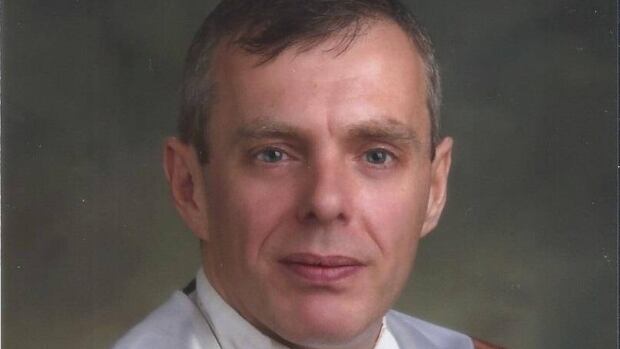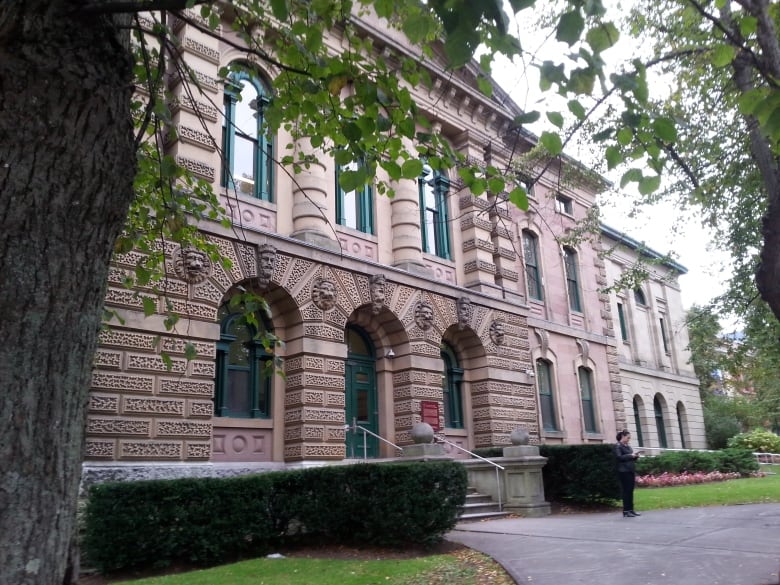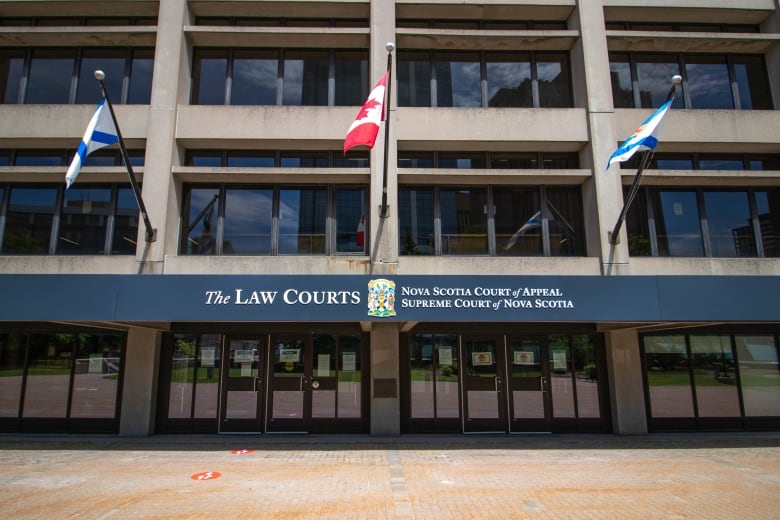
The young man put it this way to the police officer: Halifax lawyer Billy Sparks had done more for him than even his own mother. He’d taken him golfing and to the casino, paid for food and beer, and let him sleep on the couch when he needed a place to stay.
But in August 2023, the young man shared a secret with the constable, whom he had come to trust. For about two years, he said, Sparks had also been extorting him, requesting explicit photos and videos in exchange for representing him in criminal cases.
Sparks, 52, killed himself earlier this year in the south-end Halifax duplex where he lived, just days after police searched the home, which doubled as a law office, as they investigated allegations he had groomed, extorted and sexually assaulted vulnerable clients with little money.
The details of the allegations and the police investigation are outlined in court records related to a search warrant that were recently unsealed, with some redactions, by a Nova Scotia Supreme Court judge at CBC’s request.
Despite the death of their chief suspect, who was never charged, Halifax police continue to pursue the case. It will involve a secretive and likely lengthy judicial process to determine what records seized during the search can be turned over to investigators, and which fall under solicitor-client privilege.
Prosecutor Peter Dostal, who is helping police gain access to the non-privileged records, said even though Sparks is dead, there’s a public interest in seeing closure in an “extraordinary case,” and for officers to determine if there were more victims or if the lawyer had accomplices.
“Having a lawyer prey upon their clients, especially when they’re youthful clients, is a very troubling allegation and one that I think deserves to be looked at carefully, regardless of whether it ends up in a prosecution or not,” Dostal said in an interview.
The implications of the investigation could run wider. Dostal acknowledged “certain parties” could be interested in re-examining or reopening cases where Sparks acted as defence counsel, but said he can’t comment on that as it’s outside the scope of his work.
Began practising law in 2017
Sparks grew up in British Columbia, later making his way to Halifax where he worked for years at the downtown casino. He eventually attended Dalhousie University law school, became a lawyer in 2017 and ran a busy criminal defence practice.
That included occasionally taking on cases on contract from Nova Scotia Legal Aid when its staff lawyers could not, or acting as duty counsel at court, a spokesperson for legal aid said in an email to CBC News. Sparks was never employed by Nova Scotia Legal Aid.

Sparks would also allow troubled young men, and sometimes teens, to stay at his home, according to court records and two people who spoke with CBC News, and would sometimes refer to them as his “foster children.”
A police officer who was a friend from the days when Sparks worked as a pit boss at the casino told an investigator that Sparks “had been involved in fostering children in the past,” according to the search records.
A spokesperson for the Department of Community Services said due to privacy rules it could not confirm whether Sparks had ever been a foster parent.
Allegations involve 4 clients
The allegations outlined in court records involve four different young men who were clients of Sparks, although at the time of the search, police had only interviewed two of them.
In a 101-page affidavit submitted to the judge who issued the search warrant, Det. Const. Michael Sullivan wrote: “Investigators believe Billy Sparks has identified his targets, who are persons in vulnerable positions in their lives, in need of legal representation, have limited means of income to pay for legal services, have drug and/or alcohol addictions, and have little in the way of family support.”
The allegations remain unproven.
The cases aren’t straightforward, however. In one, Sparks claimed it was a consensual relationship, and in another, an alleged victim who told police Sparks had extorted sexual photos from him later asked the lawyer to represent him again when he faced fresh charges.
One alleged victim, known as Person A in court records, told police that Sparks had been his lawyer since 2019. Sparks would ask for pictures of Person A’s penis in return for representing him in his criminal cases.
Starting last year, there were “many times” when Sparks would fondle his genitals in an unsuccessful attempt to arouse him, according to his statements to police outlined in the search records, and he once woke up at Sparks’s home to find Sparks trying to perform oral sex on him.
He told police Sparks was so persistent in touching him he “basically just gave up” trying to dissuade him, asking himself, “What do I do, run away?” One day, he said, Sparks was scrolling through his phone and said, “Look, everybody sends me pics.”
Sparks boasted, according to the alleged victim, of his purported connections to prosecutors that could be used to leverage certain sentences, and would point to people on the street and say they “owed him” because he’d got them off on serious charges. The search warrant also notes that Sparks regularly golfed with a number of Halifax Regional Police officers.
Dostal said while prosecutors and defence lawyers have collegial relationships, it’s “flatly wrong” that Sparks had inside connections that led to special deals. In his view, Sparks was “simply bolstering his own reputation in the eyes of the victim for the purposes of, in a sense, extorting them further, and nothing more than.”
Lawyer made threats, says alleged victim
Person A claimed Sparks warned he would report him to police for breaching his release conditions, which would land him back in custody, and repeatedly threatened him “by saying he knows people in jail who have f–ked up people in the past for him,” according to the records.
When his legal aid lawyer, Anna Mancini, visited him in January at the Central Nova Scotia Correctional Facility where he was being held following a December 2023 arrest, he had a black eye and stitches and said he’d been “jumped,” she told the lead investigator in the case, Det. Const. John Beer.
Another alleged victim, Person B, broke down crying after he confided to a Halifax police officer that he had “been basically getting extorted by my lawyer since I was 18,” according to the search records. He said it was the first time he had told anyone.
He told police that if he didn’t send Sparks photos of his penis, the lawyer would not show up in court. But he also said Sparks had spent thousands of dollars on him, including more than a dozen golf outings, a trip to the casino in Moncton, N.B., and for food and alcohol.

The search warrant records note that as police closed in on Sparks they decided against interviewing Person B about the case again, as he had subsequently sought out Sparks as his lawyer on fresh charges and investigators worried he would tip him off.
Indeed, the prospect of Sparks catching wind of the investigation was a growing concern to police.
On March 3, more than a week before police searched Sparks’s home, he contacted a Halifax constable he golfed with and told him another lawyer had called asking if he needed representation as she’d heard he’d been arrested for sexual assault.
Sparks told the officer his relationship with Person A had been consensual, and that Person A had called him in December after his arrest and told Sparks, “You are going to give a statement for me, or I am going to say you did things to me.”
Solicitor-client privilege concerns
The officer knew nothing about the case, but made inquiries and later relayed what Sparks had told him to the lead investigator.
A police detective subsequently tried to piece together connections to figure out how the lawyer who called Sparks had found out about the investigation, concluding her contact with him was “more than a coincidence.”
The name of the lawyer and two others, all of them working in private practice, are redacted in court records. In a letter filed in court, the Crown said the police information suggests that “one or more lawyers may have breached their ethical obligation to protect solicitor-client privilege.”
Other allegations involve potential victims police had not interviewed by the time they searched Sparks’s home.
In one case, a woman went to police in Kentville, N.S., after she had discovered on the phone of her boyfriend, who had been arrested, that Sparks was paying him for sexually explicit photos and for oral sex. She told an officer she felt her boyfriend was doing the sexual favours to keep Sparks as a lawyer.

A further case involved the mother of a young man who’d recently been released from prison and told her Sparks was his new lawyer. She later saw messages on his phone that showed Sparks making a sexually explicit remark about him, and said the lawyer had been providing her son with booze and marijuana, in contravention of his court-ordered release conditions.
In mid-January, she filed a complaint against Sparks with the Nova Scotia Barristers’ Society. Mancini, the legal aid lawyer for Person A, also filed a complaint on her client’s behalf in February.
A barristers’ society spokesperson said in an email to CBC News those were the only two complaints filed against Sparks, and it was only through the first complaint that the society became aware of allegations against him. Sparks was not made aware of the complaints and the file is now closed because he is dead.
Obit paints picture of dedicated advocate
The portrayal of Sparks in court records is at odds with those who mourned his death and offered condolences below his online obituary.
Some noted his volunteer work, his sense of humour, his thoughtful gestures, his care for others and his advocacy for rental tenants in disputes with landlords. One credited Sparks with saving his life when he hit “rock bottom” by helping him stay sober.
“Billy dedicated his life to helping people,” his obituary said. “He was involved in various volunteer organizations and activities, and as a lawyer he focused on serving members of the community that were marginalized, at risk or had few other options. He felt everyone deserved to be heard and have someone to advocate for them.”
Police approached the barristers’ society in February about their intention to search his home and office, and two outside lawyers were appointed as “referees.”
They seized all items that could contain information subject to solicitor-client privilege, including two cellphones, computers and several dozen USB drives, external hard drives and SD cards, and brought them to a secure storage area at the Law Courts building in downtown Halifax.
It’s part of the special protocols police must follow when investigating lawyers, Dostal said, to make certain no privileged material is released to them. A judge appoints an outside lawyer to review material seized and determine what can be shown to police, a process Dostal said can take months or more than a year.